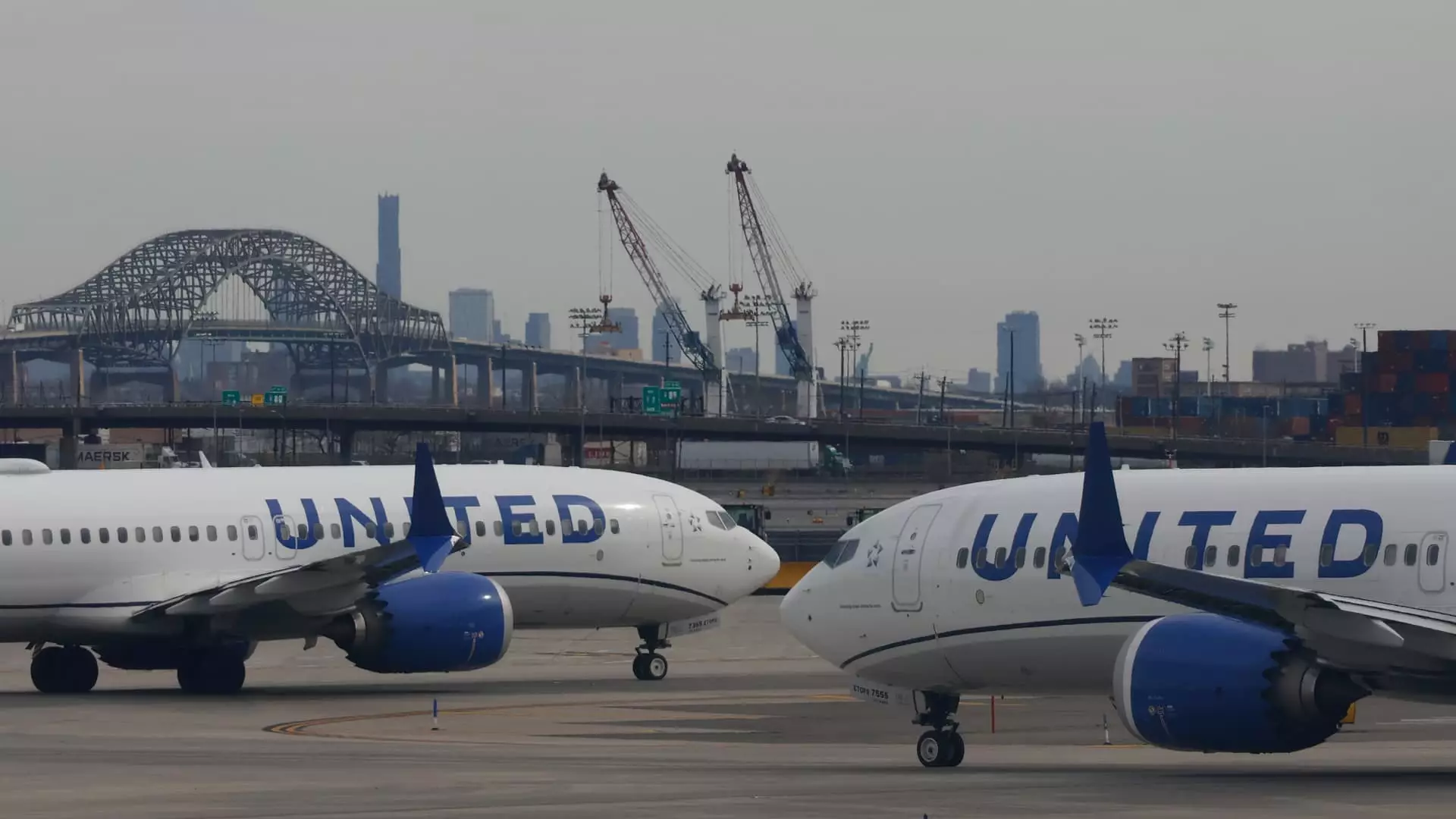When United Airlines’ CEO, Scott Kirby, announced the cancellation of 35 roundtrip flights a day from Newark Liberty International Airport, it wasn’t merely another corporate decision made behind closed doors—it was a clarion call pointing to a crisis in air travel that has been simmering for far too long. The operational turmoil faced by the airline, particularly at its Newark hub, sheds light on systemic failures that plague the aviation industry: understaffed air traffic control facilities, outdated technology, and a government apparatus that seems to drag its feet in addressing long-known issues.
The cancellation of approximately 10% of United’s daily Newark flights is not an isolated incident; it is indicative of a broader malaise within air travel logistics. Travelers faced delays that stretched into hours, and more than 300 flights were affected on a single day alone. The frustration of stranded passengers is palpable, but it also serves as a mirror reflecting the inadequacies of an industry that has long been considered a backbone of American mobility. As we critique this development, it becomes imperative to question not just the airline’s management but the entire regulatory framework responsible for maintaining air safety and efficiency.
The Blame Game
In his announcement, Kirby placed significant blame on the Federal Aviation Administration (FAA) and its longstanding struggles with staffing shortages and technological ineptitudes. While it’s easy to point fingers, it’s time for Airlines, the FAA, and Transportation Department to stop playing the blame game and take accountability for their roles in these endless disruptions. How can one expect efficient flight operations when nearly 20% of air traffic controllers at Newark have reportedly “walked off the job” due to frustrations over equipment outages? The breakdown of communication regarding scheduling and staffing between airlines and governing bodies has led to a catastrophic failure that prioritizes the status quo over systemic change.
Transportation Secretary Sean Duffy’s admission of outdated technology is his acknowledgment of an overarching problem. The frustrations aired by Kirby about the FAA’s chronic understaffing at Newark reveal a stubborn refusal to invest in infrastructure over the decades, as if simply weathering the storm will suffice. We live in an age where advancements in technology are met with frequent delays in implementation. This holds doubly true for legacy systems like air traffic control, which have needed a significant update for years yet are continually sidestepped by policymakers.
Attempts at Mitigation and Real Change
While United Airlines announced measures such as waiving change fees for affected passengers, these actions are band-aid solutions to a much larger wound. Offering compensation for inconvenience is a good stopgap but does nothing to solve the systemic failures plaguing air travel in the U.S. Air travel is an essential service, and cutting routes doesn’t protect customers; it merely pushes them into uncertainty as they scramble to find alternative flights. What Kirby and other industry leaders fail to address is the inherent lack of strategic foresight in planning capacity during peak travel times.
United’s plea for flight restrictions akin to those at LaGuardia Airport reflects a desperate gambit to regain control over an unruly airspace. This should serve as a demand not only for immediate solutions but for a complete overhaul of air traffic management in the U.S. There needs to be a concerted effort to bridge the chasm between airlines and regulatory bodies. If countries can build tunnels and develop high-speed rail systems, surely we can modernize air traffic control—an essential, life-saving service.
A Call to Action
What this debacle truly calls for is not only reform at the level of the FAA and airlines but a revolution in how we perceive air travel. It must change from a service we take for granted to a right we demand accountability for. Zero tolerance for delays and understaffing should not just be a talking point; it should become the expectation of airlines and regulatory bodies alike. Lamenting the state of air travel is futile without action. If we can advocate for change, maybe we can finally step away from just surviving delays, and instead, thrive in a system built to uplift travelers rather than frustrate them.
United Airlines, through its operational choices, is calling for an examination not just of itself but of an entire industry that should serve the public with dignity and reliability. As we stand at this crossroads, let’s hope this moment becomes the catalyst for a much-needed transformation in American air travel.

Leave a Reply